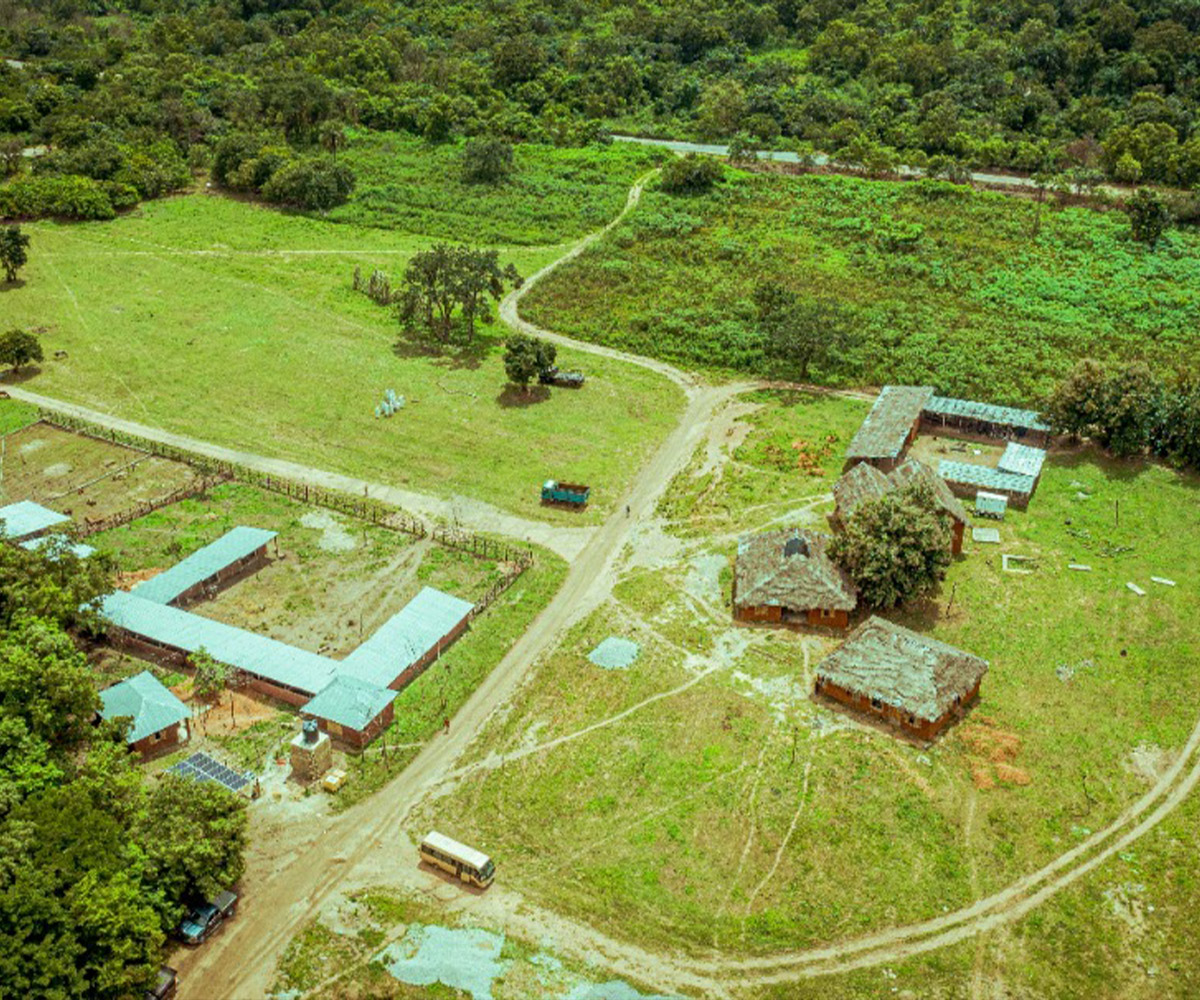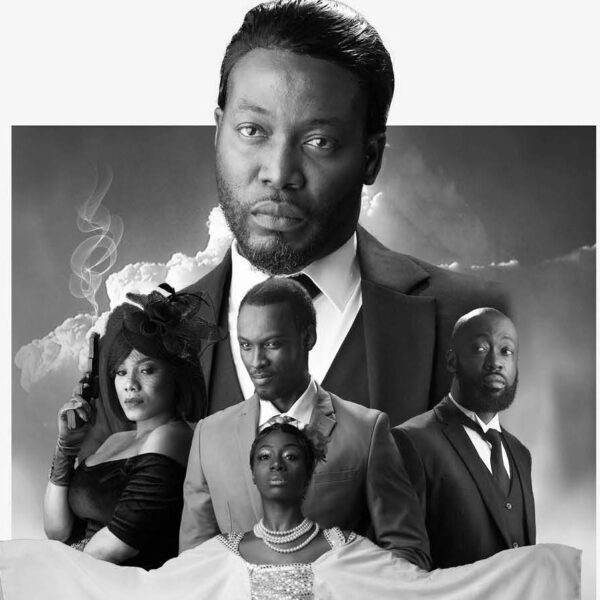
-
Gold Coast Lounge depicts Ghana’s transition to a less corrupt economy after independence from Britain.
-
My Mother’s Heart — a colorful representation of the diversity of Ghana’s tribes.
-
Aloe Vera invokes humor to explore the tribal conflicts that have long plagued Ghana.
-
Azali sheds light on human trafficking in Ghana.
Ghana is a country with a deep history, complex socio-political structures and a vast population made up of many cultures and tribes. These films are a fantastic resource for navigating Ghanaian social and historical nuances, and for gaining valuable understanding beyond the cliches often portrayed in mainstream media.
From the subtle political commentary of Gold Coast Lounge and the tribal diversity of My Mother’s Heart, to the awareness raised on issues of tribalism and child trafficking in Aloe Vera and Azali, these filmmakers lay the truth of life in Ghana bare for us to see and experience.
Gold Coast Lounge (2019)
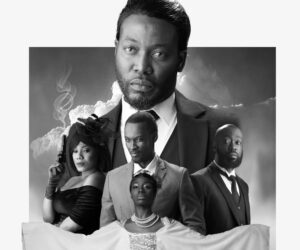
Figuring Out the Independence Thing
Daniel (Alphonse Menyo), adopted son of a ruthless drug kingpin, money launderer and owner of Gold Coast Lounge is forced to legitimize his business or face the wrath of an anti-corruption government. He is opposed by his siblings, Wisdom (Pascal Aka) and Akatua (Zynnell Zuh), who choose to continue down a dark path.
This Cain and Abel film noir allows us to understand the fundamental sentiments that existed during Ghana’s early years as the very first country to gain independence from Britain in the mid-1960s.
Gold Coast Lounge takes place during the coup of 1966, which saw Ghana’s transition to a militant anti-crime government, led by Jerry Rawlings. The film is more than a stylized surrealist exploration of film noir. It pushes further, to help us understand post-colonial Ghana, through the eyes of a family of gangsters.
My Mother’s Heart (2005)
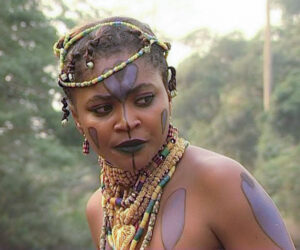
A Magical Film Explores Ghana’s Rich Cultures
Nana Yaa (Akofa Edjeani Asiedu) moves from place to place to avoid a war that is consuming the magic-filled lands of her country. Half-starved and desperate, she finds a village to call home, and becomes its queen.
My Mother’s Heart is a well-composed testament to Ghana’s rich cultural diversity—one of its most significant treasures. Ghana has more than 100 ethnic groups and tribes, and boasts one of the world’s most culturally diverse populations. Each has its own set of cultural beliefs, while still sharing incredible stories of their ancestors, histories, and traditions.
Despite its magical elements, the film is for mature audiences. Sadly, even the most beautiful light casts a dark shadow and Ghana’s cultural diversity has a dark side that is addressed by the next film on the list: tribalism.
This classic Ghanaian film captures the nostalgic Ghollywood editing and music, to the old-school green screen effects and folklore-based storylines, My Mother’s Heart still holds a special place in many a Ghanaian’s heart.
Aloe Vera

Confrontation: A Romeo-and-Juliet Tale of Tribal Clashes in Ghana
The forbidden romance between Aloewin (Aaron Adatsi), a man from Aloe, and Veralin (Alexandra Ayirebi-Acquah), a woman from Vera, symbolizes the confrontation of two communities in the village of Kelelewe that are forced to confront the absurd reality they adhere to. Aloe vera is a romantic comedy with a stellar cast and a big heart that uses a simple, effective approach to address tribalism.
The film is a clever representation of tribal clashes in Ghana. The Aloes (who believe the chicken came first) and the Veras (who believe the egg came first) quickly create stereotypes and propaganda about each other and train future generations to hate everything about each other. The tribes even go as far as resolving conflict using intense tug-of-war competitions. The village of Kelewele (the name of Ghana’s beloved crispy plantain snack) is divided over the very trivial yet popular debate of the chicken and the egg (literally) and ultimately each side builds their lives and identities around the villagers’ failure to resolve the conflict.—a clever representation of tribal clashes.
As with the confrontation between the Aloes and the Veras, relations between Ghana’s 100+ vibrant ethnic groups is far from perfect. The roots of tribalism, which existed before colonial times, were reinforced by both colonial and post-colonial governments. Ghanaians recognize this problem and, through education, aim to stress national unity and an understanding of different cultures and traditions.
Azali (2018)
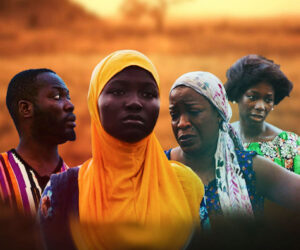
Fighting Child Trafficking: Tackling Ghana’s Brazen Crime
In a desperate attempt to give Amina a better life, her mother (Akofa Edjeani Asiedu) gives her to a woman who claims to find young girls lucrative jobs, but instead traffics and sells them. Follow the sad tale of Amina (Asana Alhassan), 14-year-old from a poor village who has no prospects beyond child marriage.
Efforts to combat child trafficking in Ghana have been significant but slow. In 2008, the Ghanaian government established its first Anti-Human Trafficking Unit, to coordinate and implement national efforts to combat human trafficking.
Organizations such as the IOM are trying to educate and engage people from around the world to raise awareness and find solutions to trafficking worldwide.
Ghana has a deep history, complex socio-political structures and a vast population made up of many cultures and tribes. These films help viewers to navigate Ghanaian social and historical nuances. They offer a valuable understanding beyond the cliches often portrayed in mainstream media.
These filmmakers lay the truth of life in Ghana bare for us to see and experience. From the subtle political commentary of Gold Coast Lounge, to the tribal diversity of My Mother’s Heart, to the awareness raised on issues of tribalism and child trafficking in Aloe Vera and Azali.

